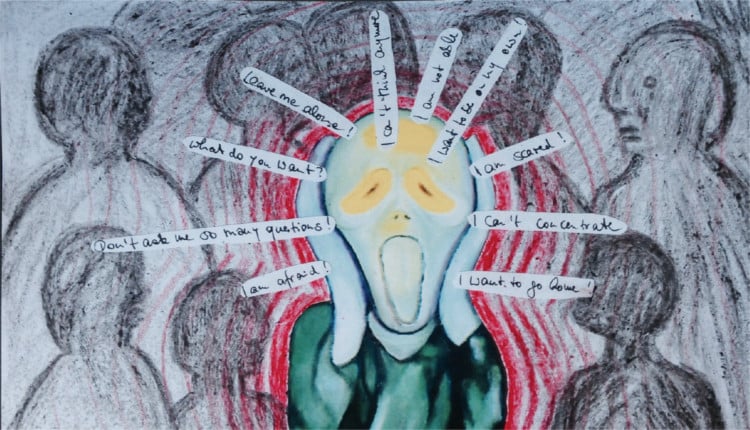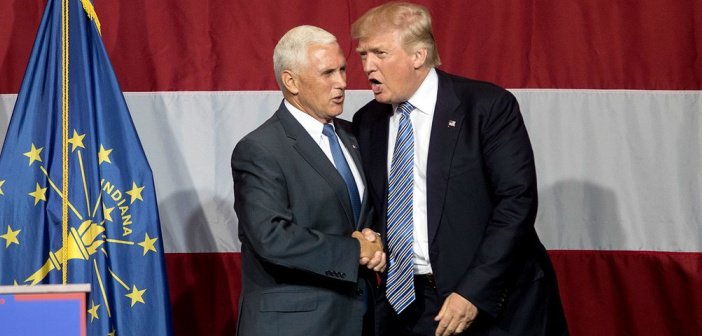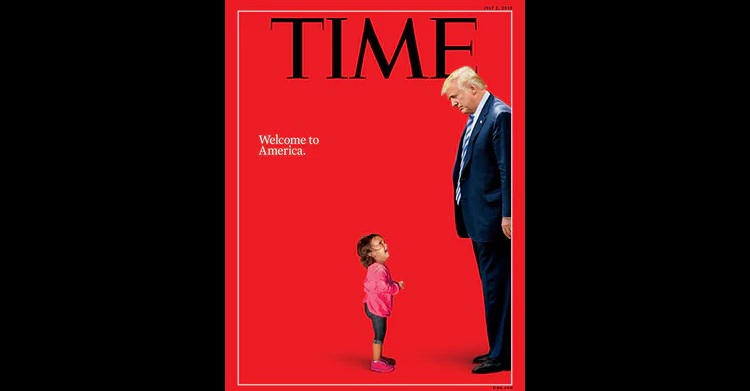Trump Anxiety Disorder | How political paranoia birthed a real phobia
The current president of the United States is fond of taking credit for accomplishments that aren’t his. One namesake he’s definitely earned, however, and something he’d probably rather not hang his name on, is something mental health practitioners in the US are calling “Trump Anxiety Disorder.”
Maybe it sounds ridiculous at first glance. But what is it, really? It’s a rational fear, certainly, rather than an irrational one. And we’ve named it after a figure who is simultaneously polarizing and wildly unpopular in the US and across the globe.
Are we giving Trump too much credit by naming a specific psychological “disorder” after him? He lazily and cynically rode a wave of chaos toward presidential “victory” — but he wasn’t the one who created it.
Nevertheless, his face is almost uniquely the face of political oligarchy and social unrest and collapse. It’s little wonder mental health patients have taken to associating Trump with an omnipresent sense of dread. Trump is not the iconoclast he claims to be — but he’s certainly causing disorder.
Unique Phobias Aren’t Unfounded
On the face of it, phrases like “Trump Anxiety Disorder” and “Trump Derangement Syndrome” appear to be more political theater from the US power establishment. But, truth be told, it seems to speak to something a little deeper than that. And mental health providers are beginning to take note — and give it a name and a face.
We’ll get back to Trump in a moment. For right now, it’s appreciating the five to 12 percent of Americans who suffer from recognized and in some cases severe “specific phobias” — irrational levels of fear attached to everyday objects, environments, situations or people. In some cases, the sufferer understands that their fears are misplaced or blown out of proportion, but knowing this doesn’t help — not without help from a mental health professional.

Plenty of specific phobias have been observed over the years, including these:
- Animal phobias are some of the most common specific phobias. These can include cats and dogs as well as reptiles, insects and even some less common varieties of animal.
- Among dental patients, around 22 percent report “severe” levels of dental anxiety, or an intense fear of visiting the dentist.
- Many patients report high levels of anxiety associated with worries over doing damage to their bodies or taking part in activities which might result in bodily harm. Examples include falling, traveling in elevators and airplanes, being eaten and experiencing pain.
Clearly, being afraid of getting trapped in an elevator or being eaten by bears are rational fears — up to a point. After it interferes with the patient’s life to a sufficient degree, these idle, everyday fears turn the corner into full-blown phobias.
That means there’s just one question worth asking:
Is a fear of Trump a rational or an irrational fear?
Trump Anxiety Disorder According to the Experts
According to experts who literally wrote the book — or, rather, the report — on Trump Anxiety Disorder, this particular affliction is different from “generalized” anxiety because it fixes specifically on Trump’s election to the presidency and its consequences. According to health care providers, such cases have risen steadily in the months since Trump’s election.
According to some therapists, stress levels are on the rise among Trump supporters as well. Some who’ve experienced the condition report their anxiety and frustration can reach levels where their only course is to isolate themselves.

Not Just Ordinary Political Anxiety
Political change and anxiety over our own political affiliations have long been acknowledged as potent sources of stress. So is Trump Anxiety Disorder a “real thing”? Is there something especially unprecedented about Trump’s presidency?
As far as his policies are concerned, he’s a run of the mill Republican. So it’s not the ideologies he represents so much as the visibility he brings to them — and their consequences.
It’s also a matter of timing. Great portions of the world are languishing in the hands of dictators. The icecaps are melting faster than anybody thought was possible. The timing of Trump’s uncompromising conservative politics, his fetishization of unsustainable cutthroat capitalism and his further destabilization of world peace by sanctioning and exacerbating America’s unbroken chain of illegal wars makes his moment in world politics feel uniquely distressing and uniquely, potentially, dangerous and deadly.
He openly goads the leaders of North Korea and Iran into declaring war on the United States. No American president in recent memory has had such little respect for the delicate position world peace finds itself in right now as republicans, democrats, Christians, Muslims, capitalists, globalists, nationalists, xenophobes, fascists, socialists and oligarchs all compete for political dominance in a world that, according to climate scientists, is falling down around our ears.
And when Trump signed off on the controversial order to move the US-Israeli embassy to Jerusalem, people died almost immediately, half a world away, whom Trump has never met in his life. That’s how vast and unchecked his ability to do harm has become. People erupt into deadly violence over even some of his most meaningless and symbolic public addresses.
Amid these other Trump-facilitated catastrophes, we’ve also watched his administration preside over Nestle’s water profiteering in Michigan and California during droughts and drinking water crises. We’ve seen them all but destroy every consumer and environmental regulation ever dreamed up, threaten the nation’s courts with far-right extremists, tear up the fragile rules governing the sanctity and neutrality of the internet, give away trillions of dollars to rich people, attempt to dismantle our health care system, threaten the long-term solvency of Medicaid, Medicare and Social Security, and throw our farmers under the bus to score political points with tariffs.
There’s also the matter of unchecked and unaccountable border “Security” operations in America separating children from their families, detaining them in horrific conditions, verbally abusing them and in many cases causing them to defend themselves in immigration court. On Trump’s watch, internment camps have returned to America.
Unfortunately, if there’s a Trump Anxiety Disorder here, it’s clearly justified. The last question left is how uncomfortable we’re willing to let ourselves get before we demand an end to Trump-style bloviation, Republican-style fascism and economic apartheid.

